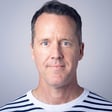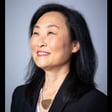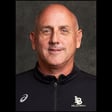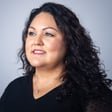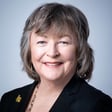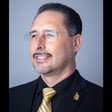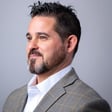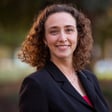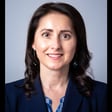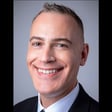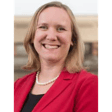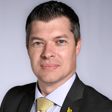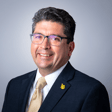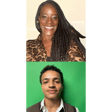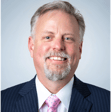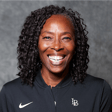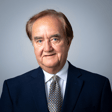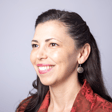Become a Creator today!Start creating today - Share your story with the world!
Start for free
00:00:00
00:00:01

Looking at CSULB through its president's eyes
S1-EP1: Jane Close Conoley, Ph.D., President, Cal State Long Beach
CSULB President Jane Close Conoley and Dan Montoya discuss CSULB’s strategic plan, the university’s future, higher education, the No Barriers campaign, and more.
Transcript
Introduction to 'At the Beach' Podcast
00:00:17
Speaker
Hello, I'd like to welcome you to the first edition of At the Beach. I'm your host, Dan Montoya, Vice President of University Relations and Development. The goal of this podcast is to share news and accomplishments, honors, personal stories, and ways you can become involved at Cal State Long Beach.
Meet Dr. Jane Close Connolly
00:00:36
Speaker
Our first guest fittingly, Dr. Jane Close Connolly, the campus's seventh president, and has held a position since 2014
00:00:47
Speaker
Prior to her current role, she was the interim chancellor of UC Riverside. She has also held leadership positions at UC Santa Barbara, Texas A&M University, and the University of Nebraska at Lincoln. She holds a bachelor's degree in psychology from the New College of New Rochelle and a doctorate in school psychology from the University of Texas at Austin.
00:01:12
Speaker
Dr. Connolly is the author of numerous publications, including a book with her husband, Dr. Colley W. Connolly. Welcome, President Jane Connolly. I'm glad to be with you, Dan. Hi. Well, it's so nice to have you in the room, considering that you're, I would consider you an expert at Cal State Long Beach. So really what we want to do is enter a conversation and get your thoughts.
00:01:38
Speaker
on some of these key questions or maybe issues to some folks. It might be new information that they may have never really looked at calcium emission that way. So I'm just gonna go through a couple series of questions, but again, your thoughts and your feedback on these, and we can just have a discussion.
Community Care and University Challenges
00:01:59
Speaker
So the first question is, you know, we kicked off the academic year and you looked at the future of CSULB
00:02:08
Speaker
in a very strategic way. Please share with our listeners what you asked the campus community to focus on this year and give us a read on how we're doing. Yeah, so we kicked off the year with a special focus on how we take care of each other. You know, we live in a kind of stressful world. We have big aspirations and we don't want to lose sight of the fact that we are a community.
00:02:34
Speaker
and I'm convinced we'll be more successful as a community. So we talked to all of our colleagues about what does that mean? How do you treat each other compassionately? How do you look out for one another? How do you treat each other equitably, making sure that no group feels like they're the out group or they're somehow marginalized? And I think, to me, some people might think that's just too touchy-feely,
00:03:02
Speaker
But my own view is that we will not be successful as an organization unless we have this bond of respect, really practice civility among each other. And we believe in the power of collaboration and cooperation to move forward our big ambitions, to really do good in the world, to really support our students so they experience timely graduation and all the other goals that we have.
00:03:31
Speaker
That was the focus of our beginning meetings as we started the year. And I think we've been doing pretty well. I think that's part of the conversation. I think there's always threats, you know, as we things happen in the world that threaten how people get along with one another. But I think we've kept the focus on creating a unified and what we call one beach.
00:03:56
Speaker
Great. Yeah, no, I would agree with that. And I think your thoughts are very consistent with where we're trying to go and what we're trying to achieve. So what is the biggest challenge we face as a university? Well, the easy one is to say money. And it is. In many ways, we're a public university that about 60% of our revenues come from the state.
00:04:25
Speaker
That's going to change a little bit. And the rest of it mainly comes from tuition. And of course, a challenge is to keep our education affordable. We were charted by the state of California to offer an excellent education at an affordable price. And with the pressures of inflation and issues around compensation, that gets harder and harder to do. So a big challenge to me is
00:04:55
Speaker
you know, keeping the promise of an excellent, affordable education available to the citizens of California. And, you know, related to the challenge of just money in terms of state money is we have a dramatically changing demographic that pretty much started in the East Coast and is working its way over, although we are already experiencing some effects in Northern California. We just don't, we have a declining birth rate in the United States.
00:05:25
Speaker
And universities are particularly sensitive to how many 18-year-olds are available to start as first years and so on, so on, marching through the next four years.
Lifelong Learning and Adaptability
00:05:38
Speaker
So we have to be resilient, I think, and creative to be looking at other groups of people who could really use the advantages or get the advantages of a high-quality education.
00:05:54
Speaker
The situation we're in now as a nation and probably a world, you know, there's a very rapidly changing workplace scenario. And so we've decided that our Another mission we can add to our university is to offer career long support in terms of professional education and continuing education.
00:06:15
Speaker
And that might be also a degree completion. I think there's 4 million Californians who have some college, but no degree. So we're building that quickly. I think we have a strong brand. People know that we offer great education. We have fabulous professors. And so, of course, but with that addition comes the challenges of being flexible, keeping up our traditional mission, but also being open to
00:06:44
Speaker
the new mission that is really necessary, I think, for the survival of our university. Living in California is a great place to live, but it's also an expensive place to live. So we have to keep our eye on housing prices for incoming staff and faculty and housing our students. So we're working on all fronts all the time.
00:07:09
Speaker
to keep the beach a place where people can afford to come and can really thrive here. Yeah, and I can appreciate that. And as being in higher education, we spend a lot of time in our careers really seeing the value of higher education. But in a lot of the articles I read, higher education seems to not be as valuable as it used to be.
00:07:36
Speaker
I'd like to get your thoughts on is higher education in America at some sort of inflection point? And is that good or bad? What are your thoughts? Well, I think there is some inflection in the narrative. The percentage of Americans who think or agree, I should say, strongly that higher education is very valuable has been declining actually over the last decade. Some of that is familiarity. You know, there's more people with college education, so it doesn't seem so rare as it used to. It's so special.
00:08:06
Speaker
Another part of it is, I think, political ideology where expertise or advanced education is not being valued by some segments of the country. But the, you know, the facts, just the facts are that people with degrees continue to out-earn over a lifetime, a professional lifetime, probably at least a million dollars.
00:08:34
Speaker
And so that's one thing to consider. But the other is that they're healthier. They take better care of themselves. They tend to vote. They tend to volunteer. So they're better for communities. They don't use social services. They're unlikely to go to jail. So all those things wrapped up in a bundle really have, I think, important implications for the individual, but also for the communities in which they live. So obviously, I have a biased opinion.
00:09:02
Speaker
I think the demise of higher education is grossly overestimated. I think we, in the increasingly high-tech world that we live in, we need innovators, we also need entrepreneurs, we need people who have deep understanding, both on the technology side, but also on the humanity side, about how do we manage now in a world that is increasingly dominated by augmented or artificial intelligence. So I think there's still a lot of value
00:09:33
Speaker
in college education, but there's a lot of value in lifelong education too, as I alluded to before, because the idea that we'll spend our time in the same job for 50 years like my dad did, I don't think that's going to be the norm anymore. I think people have to be lifelong learners, they have to be flexible, they have to be willing to keep learning to just keep up. Yeah, and one of the things that I always go back to is, you know, a university teaches you how
00:10:04
Speaker
And I think that's so powerful. And even in times as they're changing and evolving, that's always one of our challenges to prepare our students how to learn in a new environment. That's so true. Teach you how to learn, teach you how to be skeptical, how to do research, how to think critically. Those are skills that transcend any particular occupation or profession.
00:10:30
Speaker
And I think in our world that's filled with so many sources of information, we have to teach our students how to be critical and understand that some of it is misinformation, disinformation, propaganda, and some of it is based on facts. When you go through an iterative process of
00:10:50
Speaker
exploring things, you can change your mind, obviously, but I think you're right, teaching our students how to learn and how to evaluate the information around them and how just to enjoy learning as part of their lives, how to enjoy reading or enjoy being involved in artistic experiences, whether it's by performing themselves or watching performances.
00:11:18
Speaker
That's part of the enrichment of life that's so important. And certainly for the students at Cal State Long Beach, for many of them, they're coming here is the first time that they have regularly been able to access artistic performances, many first time to do international travel or even national travel for enrichment and study abroad opportunities. So I see a college education
00:11:46
Speaker
not just adding information to your brain, but really adding experiences and widening your expectations and aspirations about what your future life can be. And that's pretty exciting.
Strategic Plan: Beach 2030
00:12:00
Speaker
Yeah. The other thing is moving in a little bit more from the overall world perspective down to Cal State Long Beach, we created the Beach 2030 strategic
00:12:14
Speaker
And that was a very visionary plan in how to prepare the university moving forward, right? So maybe you can share a little bit about your thoughts about that plan and what you look forward to in achieving that plan. Yeah, that was a long-term process. I think we worked on that for over two years. And we had the involvement of 45,000 people both on campus and off campus of every, you know,
00:12:44
Speaker
category of people that we interact with. And, you know, we're well on our marching forward now with the plan. I think for for me, the important thing is it was asking us always to look around us and see what's coming. And how do we how are we ready for the students that we were getting, how are we ready for the change in economics that might surround us with the the demographics that I mentioned earlier.
00:13:13
Speaker
So in the plan, we said we have to build a growth strategy. We can't just rely on what we've done in the past. So I think that's very important. We outlined our values. We said the public good is our responsibility. And I think that's fueled a lot of our outreach to the community. We also emphasize partnerships as an absolutely essential part of our future. And I think that's been shown in many ways in terms of research partnerships.
00:13:41
Speaker
partnerships with the city, also partnerships with industry all around us, that, you know, there's internships, there's contracts, and these are not just one way. We're working to be, you know, a value add to the industry and the government, the nonprofits, all the agencies that surround us. So to me, one of the most important things is, is turning our gaze outward, not just looking inward,
00:14:10
Speaker
So many strategic plans in the past that I was involved in would say, well, the English department needs to get 10 more people. Or it was just an iterative kind of, or incremental, I should say, process. But I think this plan challenges us. And it certainly is a challenge because we are looking at changing roles of professors, changing roles of staff. Just think about telecommuting as one little slice of that, which, of course, was accelerated by the pandemic.
00:14:38
Speaker
was happening anyway at different paces across the country. And the modes by which we deliver instruction, which is our major thing that we do, before the pandemic, 96% of our courses were face-to-face. And then we went to only 4% face-to-face during the pandemic for certain areas where we just couldn't manage a remote kind of teaching.
00:15:06
Speaker
And now we're back to about 75% in person, 25% online. That's a pretty big shift from 4% to 25%. The students really want it. It makes it more convenient for students who maybe are parents. But we have to evaluate that as well to see whether or not the learning outcomes for certain groups are as strong when they don't have the interaction, the personal interaction. So it's a learning
00:15:34
Speaker
It's a research project inside the university, too, to make sure we're meeting students where they are. And there's not just one way to do it. But I think it's part of the plan that we had where we said we must make ourselves resilient to whatever comes over the horizon. And I think we've been doing that. We managed to actually grow our enrollment during the pandemic. We didn't suffer any
00:16:02
Speaker
Great losses in at least the initial enrollment after the pandemic, if I could be so bold as to say after the pandemic. We are facing a problem in persistence. Fewer students came back. We were probably 800 students down last year, which was a surprise. So we have geared up to offer programs to students that are aimed specifically at increasing their persistence, that is they
00:16:30
Speaker
They finish the first year and then they come back the second year. So that's what we call persistence and second to third year and so on and so forth. So that's in addition, of course, but to our graduation initiative, but it's really the foundation of our graduation initiative that students find a sense of belonging here and they find that we're preparing them or helping them prepare to meet the dreams that they have about their lives. No, I think it definitely allows us to be nimble.
00:16:59
Speaker
to be able to be flexible and to be able to move in strategic directions when we need to. So I really appreciate that feedback.
The No Barriers Campaign
00:17:09
Speaker
Moving a little bit more deeper into the university, we launched the No Barriers campaign. And it's an opportunity for us to help people invest in the great things that are happening
00:17:26
Speaker
So maybe you can share with us some of the campaign highlights and what have you learned from this effort? Yeah, the No Barriers campaign has been quite a journey and I've been very excited to be part of it. It's enabled me to meet hundreds more people than maybe I would have without the campaign and to tell the story of the university, tell the story about the opportunities to invest in individual students, whether that be through direct scholarships or through
00:17:55
Speaker
supporting various programs like our internship programs that I mentioned earlier. So it's a direct funnel for me to explain how investing in our students is really investing in the Long Beach community and the greater Long Beach and the region. It also gave us a chance, I think, to think about really what are the major pillars upon which we rest. And of course, number one is
00:18:23
Speaker
student achievement, that's first and foremost. But we also looked at the workforce around us. What does California need to be maintained as the fourth or fifth biggest economy in the world? And for our region, we were able to see that healthcare and aerospace and hospitality and logistics and education were key community elements.
00:18:53
Speaker
How are we focusing our academic program to really meet those industry needs? So that's been a great exercise because it's put us in close conversations with the leaders of those various industries, created job opportunities and internship opportunities, research opportunities in all those areas for our faculty and for our students.
00:19:20
Speaker
The other thing about the university, something we all believe in very strongly, is that we're not just a place to come and get a degree. We're a place that's an anchor for our university. And we want to, and we must, contribute to the public good. And so we house and support many efforts, besides
00:19:43
Speaker
graduating 10 or 11,000 students a year to enter the workforce, which is vital, obviously. We have many clinics. We have many research projects. We have many programs in the community that target health, that target literacy, that target mental health. We have a trauma recovery center in one of our local hospitals. So supporting those efforts, so we're more able to do good in the community is very important to me.
00:20:13
Speaker
because I want the community to see us as really a resource that they can come here for intellectual, artistic, cultural kinds of events, but they can also see us as part of the economic fiber of the community. I think a fairly recent economic impact study showed that we had a $1.3 billion annual impact on the local community. Now that's just dollars and cents,
00:20:42
Speaker
it relates to lifting up the entire community through the people we hire, the taxes we pay, the kind of other contributions we make to the community. Yeah.
Student-Focused Initiatives and Support
00:20:55
Speaker
So, Jane, as we work about our Cal State Long Beach and look at it as a national model for student achievement, power of internequity, we've come a long way since our founding. So, what has been
00:21:12
Speaker
our role in higher education, and how have we changed the lives of our students, alumni, faculty, and staff, not to mention our communities we serve? Yeah, that's a big question, and I can start with students. I think our national model is, or our model that we know is being adopted by others, is to really see us as a student-ready university, and that means, you know,
00:21:38
Speaker
The students we admit, how do we organize around them? How do we be student-centric? Generally, American higher education is considered faculty-centric. That's not a bad thing. It's just another model. So this has led us to really work on a basic needs program. We know that hungry students or students who are living in their cars are not going to be as successful as students who feel secure in housing and in food.
00:22:08
Speaker
It's also taken our attention toward their mental health. We have a beautiful and very comprehensive mental health plan for our strategic plan for our students that really emphasizes, of course, prevention, reducing the factors that cause distress, but also quick intervention. And one of our taglines is
00:22:35
Speaker
that there is no wrong door. If a student needs help, any door that they knock on will bring them to bring the help that they need to them. So a big part of the new model, the model that we're implementing is this holistic needs of students. And then on top of that, we layer excellent academic programs that are really in tune with
00:23:01
Speaker
workforce needs, as I mentioned before, but also who have faculty who really care about students, who will also be the ones who will refer a student or bring a student over to the mental health clinic or refer the student to our pantry or help a student find an emergency grant. We've just increased the size of the emergency grants that we offer. And by the way, we talked about No Barriers campaign, much of what we can do in this space
00:23:31
Speaker
is through private philanthropy because the state does not fund much of this effort. They have some funds set aside for food, but there's not a huge amount of state money coming for this. We also are looking, I mentioned internships before, but another part of this model is to get our students out into the work world as quickly as possible. So that really helps them
00:23:59
Speaker
come to grips with really what their future dreams might be. Many students enter a university without a clear idea really where they want to go or they have been told that they should be X. They start studying that and then they find out they really are not interested in it. So then where do they go? So this introduction of career readiness and work experience is a growing part of this plan that we have for students. We've also hired many
00:24:28
Speaker
advisors so that they're not alone as they progress through their academic programs. And we're paying a lot of students, too, who are as peer mentors, because students will often talk to other students more readily than they will to a professional. And so we've trained hundreds of students, whether they're undergraduates or graduate students, to be that listening ear and that person who knows how to connect a student if they need additional
00:24:57
Speaker
resources. So we hope our, what we're modeling is showing that it's possible to offer excellent academic programs. We have funding to offer early research opportunities for students. We know that that helps them commit to a field, especially in engineering and in science earlier and be more successful. So it really is, you know, there's a lot of, there's a lot of moving parts, but they're all held together by
00:25:28
Speaker
what research has shown us to be factors in moving a student toward a successful graduation and a successful career, as well as giving them time and experiences that help them reflect on who they are as people and discover who are their best selves and how can I be my best self here? What do I really want to do with my life? And enough service opportunities that they leave our
00:25:58
Speaker
campus with a commitment to improving their communities. To me, that's the ultimate goal of this model that we've been espousing. That's great.
Personal Motivations and Scholarships
00:26:07
Speaker
Jane, let's come a little bit closer and deeper and learn about you. Tell us what you think it means to be a beach family.
00:26:24
Speaker
Well, that's a great question. It's a very big family. You know, we have 38,000 students and another 2000 faculty and then another probably 2000 staff members. So it needs to be part of it is to be part of a really big and highly diverse and community and diverse in every way in terms of both their identities, ethnicities, opinions, politics, religion,
00:26:50
Speaker
national origin the whole thing. So it's pretty exciting to be a member of a community with that much diversity and the chances to learn from one another. I think the other aspect of it is to be committed to creating something beyond just my individual experience. That I want to be a member of a community that, you know, certainly cares about each other. I mentioned that earlier in our conversation, but also sees that there's
00:27:20
Speaker
a common good and a transcendent goal, like we want to contribute to the university. And that might be through dollars, you know, at a certain point, but it also might be just through, you know, being committed to doing the right thing and telling the story and being the best person that one can be. And looking out for one another, for sure,
00:27:47
Speaker
But also keeping in mind the values that we have, that we, you know, we're a center of learning. I've already mentioned that we're committed to the public good, that we really value each member no matter what their identity is from all those different sources and equities at the center of our value system that no one should feel like they are marginalized here and that they haven't, everybody has a chance if they engage and if they try.
00:28:17
Speaker
to really develop a sense of belonging. That's great. So you and Colleen are philanthropic supporters to the university as well. What inspires you as a donor to support the university? Well, what inspires us really is knowing our students and we know their stories and we tend to give towards scholarships because we know that even if it's not a full scholarship, it can make the difference between
00:28:46
Speaker
graduating and not graduating. Sometimes that's $1,000 or even $500. So I think we're most inspired by knowing the students, knowing their stories, knowing their dreams, and of course, knowing many, many alums over the years that we've had in higher education and seeing what those alums have done for their communities and wanting to give both our current students that opportunity to be contributors, but also
00:29:15
Speaker
to have it just a little bit easier. When I hear about our students who have three different jobs and are going to school full time, I just think, well, maybe if you just had one job, your life would be a lot better. Or maybe if you could get your car fixed, you didn't have to take two buses that took you three hours to get here. So the inspiring thing for us is kind of paying it forward. We both finished our degrees in very different places, me in New York City and in Texas.
00:29:45
Speaker
But we had family support. And I know that not all of our students have that advantage. And so just kind of give them one extra leg up to be successful. Again, thank you and Kali for all you do for the university. We'll finish with this last question. And how would you like to invite our community to get involved
00:30:15
Speaker
Well, first I'd like to just about to come on over, you know, we have the Carpenter Center, we have the Cleveland Contemporary Art Museum, we have lectures, we have performances, we have exhibits of our student artists, we have a lot going on on our campus all the time. In addition to just walking around the campus and enjoying the public art that we have and the
00:30:38
Speaker
incredible array of shrubs and trees and flowers. Those are our gardeners, we really appreciate how we've created a real urban garden here, I think. So I think the first thing is just come and get to know us. And then, you know, get involved, join the, join the Japanese garden, the Earl Burns Miller Japanese Garden, join the, you know, get season tickets to the Carpenter Center and become a friend of the museum. And
00:31:05
Speaker
Just you'll meet people, you'll meet faculty, you'll meet students, and you really find a community here. You know, part of something that we offer to our friends and community members who are retired, we have the Osher Learning Center, we call Ali. Its slogan is the best, learn more, age less. And it's true. I mean, Ali, people who participate in Ali, and they're, you know, they're excited about life, they're always learning something new.
00:31:32
Speaker
So at any age, either through Ali or our LifeFit program or many athletic events that are very exciting at the pyramid and at other venues, this is a way to use a community resource that gives back to you as well as you giving us the pleasure of your company. Thank you, Jean. I really want to say on behalf
00:32:00
Speaker
myself and the rest of this community, thank you so much for all that you do for us. We really appreciate it. And it's not an easy job to be a president of a CSU institution. Is that right? Really? I don't know. It's very rewarding. I guess I know we can make a difference in people's lives. And you do. And so we really appreciate
00:32:22
Speaker
And Jane, I want to thank you for the conversation. It's been great chatting with you. And that concludes our first episode of At the Beach. We look forward to bringing more stories and more adventures of the beach to you. And we look forward to seeing you at a conversation near you. Go beach. Go beach.
